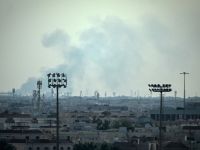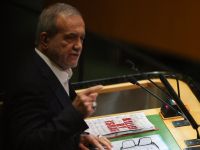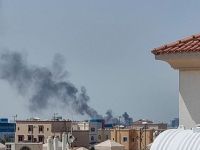A reluctance to invest in energy infrastructure in Middle Eastern and North African countries, partially because of unrest in the region, could drive up oil prices, an economist warned Tuesday.
Fatih Birol, the chief economist for the International Energy Agency, said $1.5 trillion needs to be invested each year if the world is going to meet the energy demands from now until 2035. Much of that money has been forthcoming, he told reporters on the sidelines of a meeting of energy ministers and industry leaders in Paris.
But there is a particular shortfall in the Middle East and North Africa, from which 90 percent of the growth in oil production will come over the next 10 years. “If we don’t find that money, then the production won’t grow as much as it needs to grow, and as a result of that, one can see much higher prices than we have now today,” he said.
An upcoming report by the agency will look more closely at the precise impact on oil prices a shortfall investment will have. Birol said some countries were choosing not to produce as much as the market wanted, while others were unable to because of unrest.
He would not name any specific countries, but protests that swept the region this year have raised concerns that oil production could be affected. There is particular interest in when Libya will return to producing the 1.6 million barrels it used to pump each day before it descended into civil war.
Libyan crude is of exceptionally high quality and therefore particularly valuable. International oil companies have started to return to the country, but the situation in Libya still remains far from stable. Birol said many fields in the country haven’t even been assessed yet, so it was difficult to tell when it would ramp up to prewar levels.








